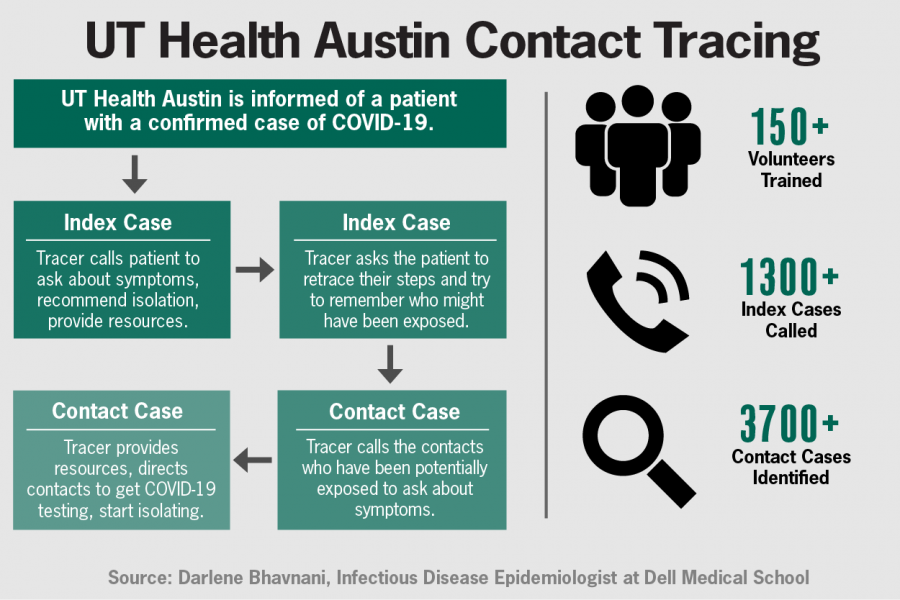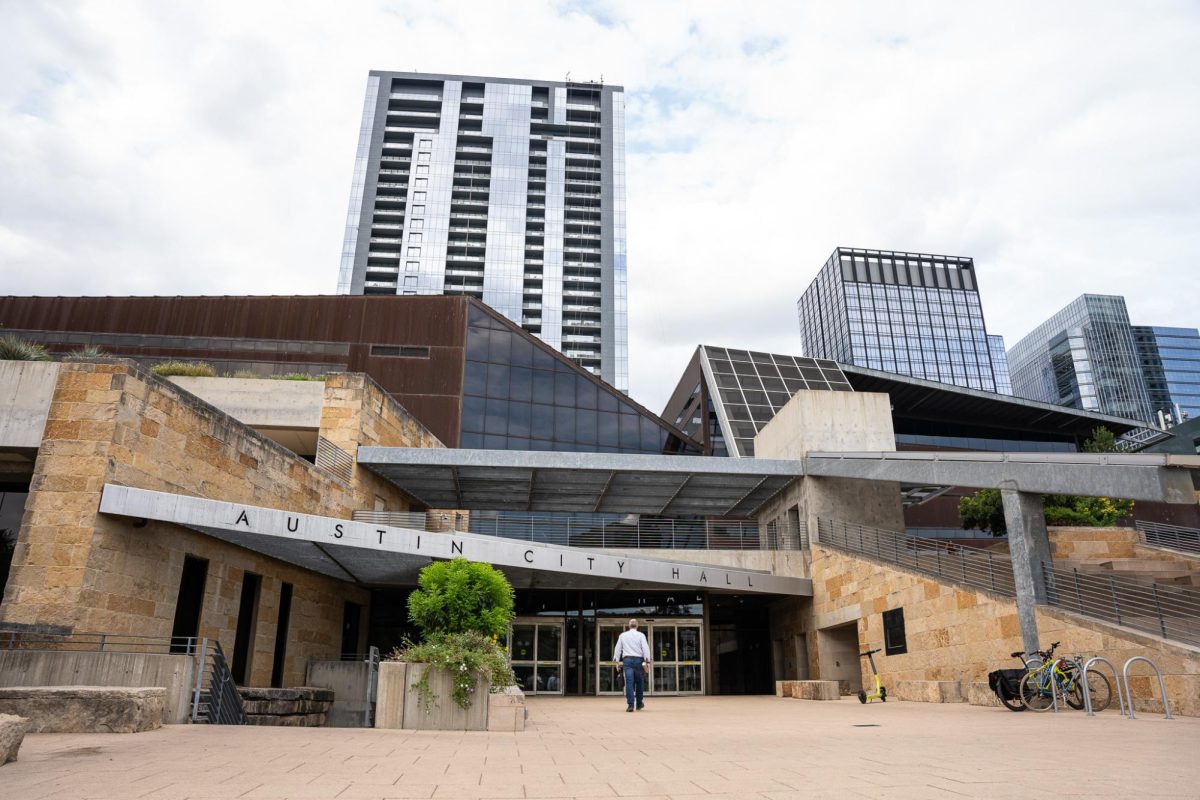As part of an Austin-area contact tracing initiative, University community volunteers are calling patients with confirmed or suspected cases of COVID-19 to help curb the spread of the new coronavirus.
When COVID-19 cases appeared in Austin this spring, Dell Medical School and Austin Public Health formed a contact tracing program at UT Health Austin to combat the disease, said Darlene Bhavnani, an infectious disease epidemiologist at Dell Med. More than 100 students, employees and other community members are working shifts as contact tracers in the initiative, said Bhavnani, the lead epidemiologist for the program.
Bhavnani said that because COVID-19 can spread rapidly, contact tracing is important in containing the disease’s spread. Contact tracing is a systematic process of monitoring a disease’s spread and providing resources to those affected, according to the U.S. Centers for Disease Control and Prevention.
“As Texas opens up, as people start moving around more, tracing will become essential,” Bhavnani said.
Public health senior Addison Allen said she got involved with contact tracing in April and has helped at least 30 others join the effort as part of her organization, COVID Longhorn Epidemiological Assistance Network, to promote student involvement in fighting the coronavirus. Allen said the work makes her feel like a detective.
“You have to figure out where they went, try to find out everything they did when they were infectious,” Allen said. “The best part is being able to take away the fear that is involved with the disease — telling people they’re going to be okay and we have resources for them.”
The process starts with a confirmed positive case, Bhavnani said. A tracer will reach out to that patient, who is designated as an index case, to ask about symptoms and provide resources such as food assistance, housing and domestic violence guidelines when needed.
Next, they ask the patient to retrace their steps and name any people they interacted with while infectious, who are labeled as contact cases. Then, tracers call contact cases and ask about their symptoms. If contacts show signs of infection, they are given resources, asked to isolate and directed to a testing location. When contacts don’t show symptoms, they are asked to isolate and get tested as a precaution.
The UT Health Austin contact tracing unit has been notified of more than 1,300 index cases and identified more than 3,700 contact cases, Bhavnani said.
Biology senior Joyce Tiong said working as a tracer was her way of assisting the public health system during the pandemic.
“Seeing everything that’s going on in the world with coronavirus and how much health care workers are doing for us, it just felt very frustrating to sit around and do nothing,” said Tiong, who joined the team in May. “Contact tracing is a small thing we can do to help out all of the public health officials and the community.”
While the University continues to plan for an in-person fall semester, Bhavnani said contact tracing is crucial to preventing outbreaks on campus.
“We have learned through our own work … that students tend to mix in a different way than the rest of the community,” Bhavnani said. “We really need to make sure we’re doing good testing and we’re doing good tracing, setting our students up for success.”





















